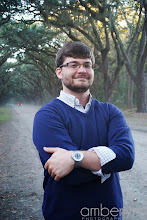The Oxford English Dictionary is a wonderful and amazing creation. One of the most fascinating aspects of the dictionary is its inclusion of each words etymology. The reader can see when the word was first used, its original spelling, and how it has evolved throughout time. So the word Romantic’s first recorded sighting came about in 1659 when Henry More used it in his Immortal Soul II, saying “I speak especially of the Imagination which is most free, such as we use in Romantick Inventions.” Right off we see that the word we use today was spelled a little differently and probably had a different definition. Here, More was using it as an adjective to describe a certain type of invention. The word carried with it the meaning “of the nature or, having the qualities of, romance in respect to form and content” (OED). Well, this makes perfect sense, right? The definition follows pretty closely to how we would think of it now-a-days. It relates to romance in some way, shape, or form. More’s “Romantick Invention” could be a love sonnet or some story that deals with lovers and their romance. Only six years later though, Robert Boyle writes about More and promptly drops the “k” at the end of More’s word. A good move if I do say so myself.
When words were first being spelled and brought over to the English language, there were a lot of spellings that seemed redundant or silly. As time went on, other authors adopted and adapted words to make them sleeker and more easy to use. In 1066, the Norman conquest took place and that changed how we speak today quite a lot. So we went through several transitions in spellings and meanings when we left old English and went to middle and then from middle to early modern and so on. One would think that back then, since printing was not as easy today, they would try to spell words as easily as possible. There are, of course, some words that just got harder to spell as time went on…but that is because people are silly.
I think that the most interesting facet of the definition of romantic is its many meanings that have nothing to do with romance. For instance, the second definition deals with romantic meaning “[o]f a fabulous or fictitious character; having no foundation in fact.” Wow. How cool is that?! We have gone from romantic having a strict tie to romance, to it meaning something that is completely made up. How does that happen (Might I add that the author, Mr. Pepys, spelled the word “romantique.” How does that happen?)? I think it says a lot about how people looked at language back then and how they interpreted words. Perhaps Mr. Pepys here didn’t think that there was such a thing as romance. Or maybe that the idea of romance is so fantastic it could only be made up. Romance is something that is unattainable by human kind. Something only divine could accomplish perhaps? The meaning didn’t stop here though. Four years later, Sir W. Thompson used romantic to mean “[f]antastic, extravagant, quixotic; going beyond what is customary or practical” when talking about building a bridge over the river at Putney.
Romantic has had quite the etymological journey over time. It is so cool to see how this word has changed so much over time, and these are only a few of the stops along the way. I feel that it really enriches our lives to know that there are deeper meanings to words other than what we may read on dictionary.com. We can find out so much more about words by doing a little investigating. Don’t be a stranger!

2 comments:
Corbin,
You provide some interesting observations and speculations on the differing meanings (and spellings) of Romantic over time. While at times you seem to digress quite a bit, I do appreciate the way you quote and refer to specific phrases, authors and dates here. It is a good idea to be precise, so your reader can better understand your thoughts on and reactions to the text. Note that the word Romance in the definition does not mean what we would understand it to be, but to an adventure story of knights, dragons, enchanters, etc. (like a Medieval romance), and the term comes from the Romance languages (like French) in which the stories were composed in the middle ages. Love had little to do with the use of the word Romantic until the mid 20th century, as the OED definition indicates.
Corbin,
I really appreciated your writing on the definition of Romanticism handout. It seems like most people are focusing on the authors, so it was a nice change of pace.
I liked how you traced the evolution of "Romantic" through time. I appreciated your comments about how "Romantic" doesn't always have to do with love stories; in modern society we often forget that the term had and currently has different meanings.
Post a Comment